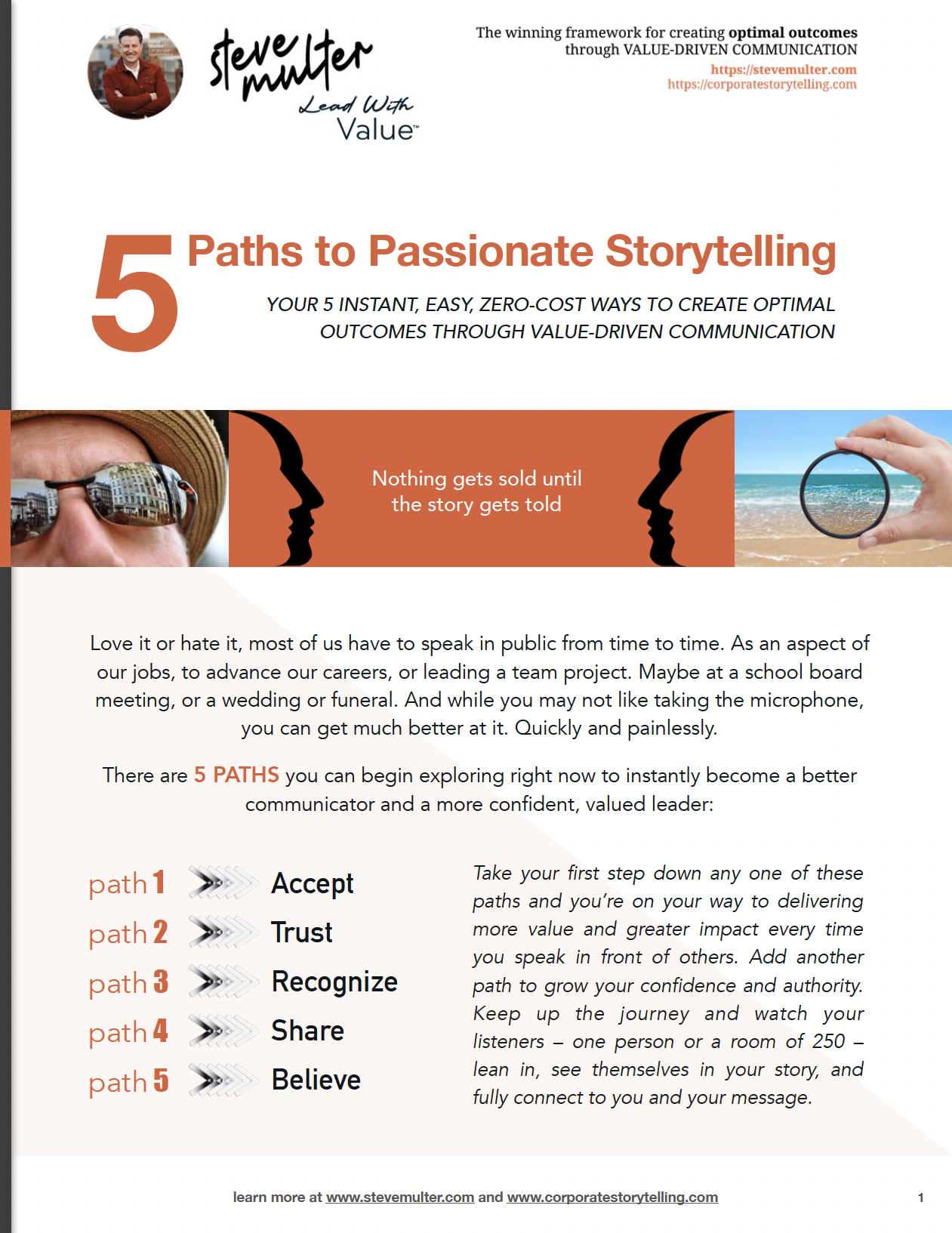
Download Steve’s free 5 Paths to Passionate Storytelling eGuide to quickly begin adding value, passion, and connection to every interaction and presentation.
And join Tuesday Tips & Tricks for Steve’s weekly strategies on better public speaking and marketing message skills.


700 W Irving Park Rd. Ste A3
Chicago, Illinois USA 60613
steve@corporatestorytelling.com
+1 312 371 9640
TUESDAY TIPS & TRICKS delivers exclusive insider communication strategies straight to your inbox, making you a respected leader and invaluable asset to your organization.
I authorize the temporary storage of my data for this subscription only. Data will never be sold or traded and may be canceled at any time following signup.

Join the Steve Multer. Corporate Storytelling. community and get Steve’s proven 5 PATHS TO PASSIONATE STORYTELLING eGuide to instantly add value, passion, and connection to every presentation you deliver.

700 W Irving Park Rd. Ste A3
Chicago, Illinois USA 60613
steve@corporatestorytelling.com
+1 312 371 9640